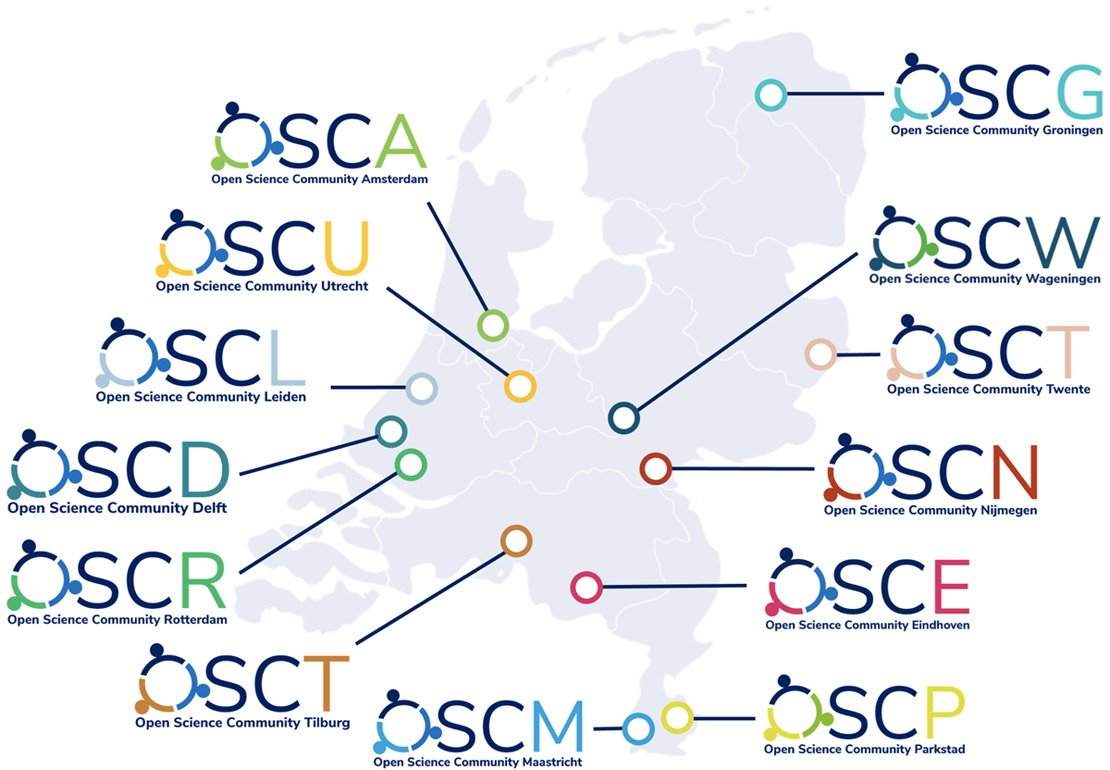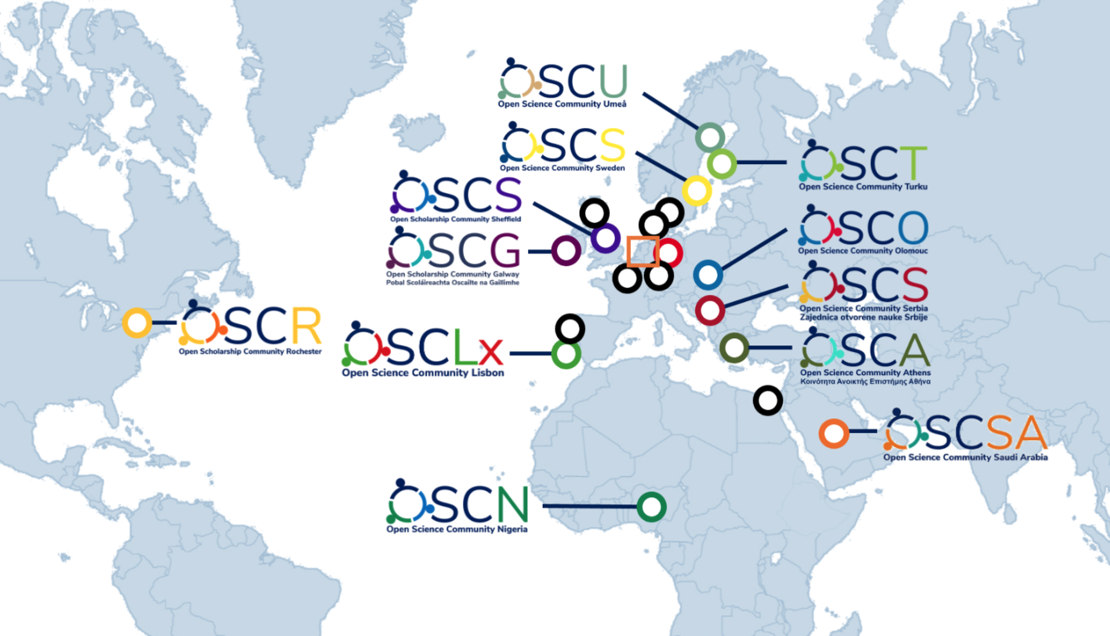We, the Open Science Community Twente (OSCT), consider the values of Open Science (OS) to be important, i.e., quality, integrity, equity, fairness, diversity, and inclusiveness. We also believe that these values can solve current issues in the scientific and educational system. Therefore, we support and facilitate the cultural change towards OS at the University of Twente and Saxion University of Applied Sciences to benefit society by creating more inclusive, accessible, transparent and credible knowledge that also fosters trust in science.
We welcome everyone in our community who feels connected to the Twente region and who wants to learn about and/or contribute to the cultural shift towards OS. We are inclusive and respect different opinions, i.e., critical thinking is welcome and all voices matter. Whether you're an experienced OS advocate or just curious to learn more, your participation is welcome and valued
Being part of the OSCT not only allows you to connect with other members, learn new skills and enhance your research, but also provides opportunities to share and discuss OS and its practices. It also offers the opportunity to actively shape the culture at the universities in Twente, for example by providing input and suggestions to managers and decision makers. Finally, we facilitate new initiatives that focus on OS.
As OSCT, we are also part of the Dutch Network of Open Science Communities...

... and together with the other OSCs in the world, we aim at making OS the new norm.

Image credit: Anita Eerland; black circle: Open Science Communities in the making
What we do
Our overarching goal is to assist UT in accomplishing the transition towards OS and to facilitate the broader adoption of OS practices. Therefore, we
- make OS more visible and accessible within and outside UT,
- organize events, seminars, and workshops,
- facilitate knowledge exchange amongst peers,
- support member initiatives focused on OS, and
- connect with international OS communities.
Target group
Although our main target groups are researchers, Ph.D. candidates, and students from UT and Saxion University, the community is not built for researchers only. We welcome everyone who is involved, for example, in policies or teaching, and would like to get started with OS or bring the existing knowledge to the next level. If you are interested in OS and looking for information, this is the place to be! The OSCT provides a space where people from Twente and interested in OS can come together to
- ask questions,
- look for support,
- share (positive and negative) experiences,
- acquire skills to make their work more open,
- connect with other enthusiasts,
- and ultimately shape the OS landscape.
So, don't hesitate to ask a question.
What's next? Sign up for our monthly newsletter, and we will let you know!
You can't wait and would like to get involved? Why not become a member just right now? No matter if you have little or expert knowledge about OS, just come with an open mind and be curious about the broad spectrum of OS topics.
